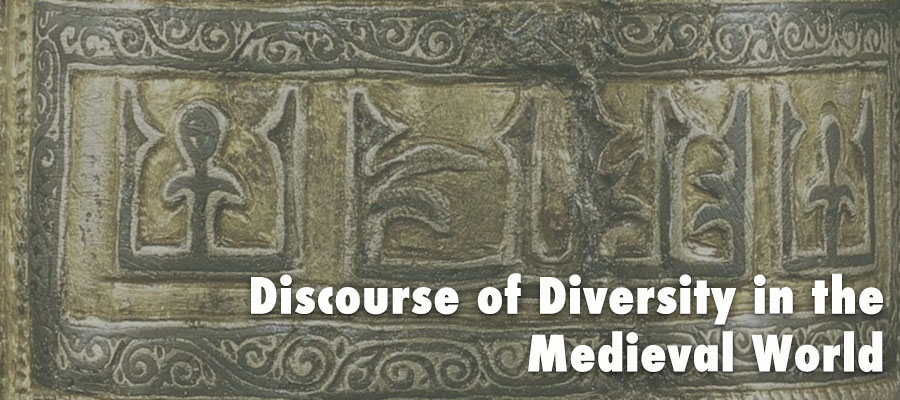Contributions are sought for the edited volume Discourse of Diversity in the Medieval World.
Editors: Eric Shane Bryan (Missouri University of Science and Technology) and Jill Fitzgerald (US Naval Academy)
Discourse and Diversity share a deeply reciprocal relationship. Differences in our personal, cultural, and situational identities influence how and why we communicate with one another. Discourse correspondingly reveals those diversities across the many boundaries that differentiate us as individuals and groups of people—boundaries of language and culture; of gender, relationship, status, and age; and of religious, political, and social conviction. Discourse thus becomes a kind of roadmap that may be followed to explore the subtleties of diversity across time and place. This volume aims therefore to understand diversity in global medieval texts through the lens of discourse.
Discourse may here be fundamentally understood as how we talk to one another but may be represented in medieval texts as direct discourse, missives, sermons, or visual communication.
Diversity in this volume will be understood in all of its many facets. The editors of this volume welcome assessments of discourse in sources from cultures coeval with texts produced in medieval Europe—for example, from the Islamic world, Central and East Asia, Africa, and beyond. Of equal importance are examinations of discourse and diversity in European sources along the axes of culture, language, socio-economics, gender and other identities, nationality, and religion.
The editors of this collection invite 300-word abstracts (essays of 7,000-8,000 words following abstract acceptance) that approach this subject from a range of perspectives. Submissions might address the following or other related topics:
- Cross-cultural discourses
- Discourse across gender identities
- Discourse across language boundaries
- Speech acts in contested spaces
- Implicature in comparative cultures
- Verbal and physical conflict
- Discourses of conquest
- Contrastive pragmatics
- Discourse in comparative literatures
- Translation studies
- Discourses of nation-making
- Felicity conditions across cultural boundaries
- Visual representation of diverse discourses
- Self-worth and social status in diverse spaces
- Diversity of cultural contexts
- Diversity of speech situational contexts
- Face Threatening Acts across borders (cultural, social status, etc.)
- Discourse across religious borders
